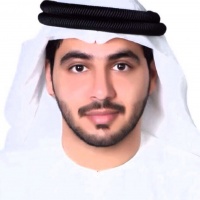Home » United Arab Emirates » UAE - News » UAE: Osama Al Najjar, an activist arbitrarily detained and tried for defending human rights
Osama Al Najjar is an Emirati blogger who was particularly active in defending the 'UAE 94', on social networks. The 'UAE 94' case refers to 94 activists, among them his father, Hussain Al Najjar, who were arrested and detained for allegedly plotting to overthrow the government of the United Arab Emirates (UAE). In 2013, Alkarama sent a complaint the United Nations Working Group on Arbitrary Detention regarding the case of these 94 defendants, amongst which 64 were given very long prison sentences, which qualified their detention as arbitrary. An international campaign has also been launched to seek the release of the 64 political detainees.
On 17 March 2014, the day after he expressed criticism via Twitter in relation to the broadcasting of a radio interview with the Ruler of the Sharjah Emirate, Al Najjar was arrested and taken to a secret detention centre controlled by State security services. There, he was interrogated and tortured for four days completely isolated from the outside world. Despite severe bleeding, Al Najjar was denied the detention centre doctor's request to transfer him to hospital.
According to his family, Al Najjar was the victim of reprisals because of his cooperation with UN human rights mechanisms. Al Najjar would have been subjected to torture due to his meeting with the UN Special Rapporteur on the Independence of Judges and Lawyers, Gabriela Knaul, during her visit to the UAE between 28 January and 5 February 2014. His case was also highlighted by the UN Secretary General's report to the Human Rights Council on August 2014.
The Alkarama Foundation expressed strong concerns about the victim, who is likely to be sentenced on the basis of confessions obtained under torture. Al Najjar will face his first hearing before the Federal Supreme Court in Abu Dhabi, which has tried several human rights and political activists and whose decisions, unanimously qualified as unfair, are not subject to appeal.
Alkarama stressed the facts that Al Najjar was not allowed to access his file or to contact a lawyer. His trial will take place behind closed doors since a limited number of people will be allowed to attend the hearing, including journalists known as official media representatives.
Alkarama asked the UN Special Rapporteur on Human Rights Defenders to enjoin the Emirati authorities to release the victim and to remind them of their obligations under international law.
For more information or an interview, please contact Alkarama's Media team at This email address is being protected from spambots. You need JavaScript enabled to view it. (Dir: +41 22 734 1007 Ext: 810)
 Algeria
Algeria Bahrain
Bahrain Djibouti
Djibouti Egypt
Egypt Iraq
Iraq Palestine/Israel
Palestine/Israel Jordan
Jordan Kuwait
Kuwait Lebanon
Lebanon Libya
Libya Mauritania
Mauritania Morocco
Morocco Oman
Oman Qatar
Qatar Saudi Arabia
Saudi Arabia Sudan
Sudan Syria
Syria Tunisia
Tunisia United Arab Emirates
United Arab Emirates Yemen
Yemen Other Countries
Other Countries






